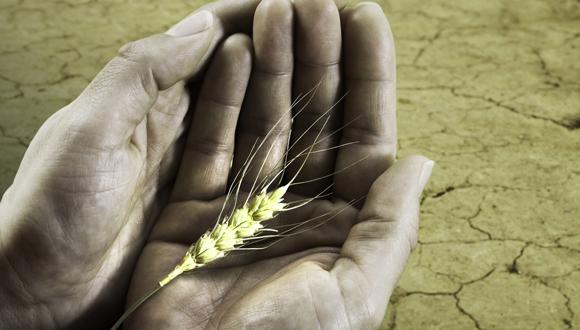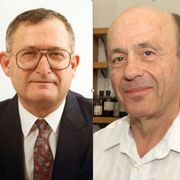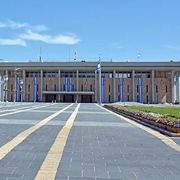TAU International students make Hult Prize regional finals
International students at Tel Aviv University embrace social entrepreneurship to tackle the global food crisis and make the regional finals of the Clinton Initiative's $1 million Hult Prize.
Three teams from TAU International — Tel Aviv University's extensive English-language degree programs — competed in the Regional Finals of the Hult Prize, a collaborative initiative between Hult International Business School and the Global Clinton Initiative. The selected team members are all enrolled in International Master's programs: Conflict Resolution and Mediation, Environmental Studies, and the Sofaer International MBA.
Called a "start-up accelerator for social good," the prize is designed to encourage students in the field of social entrepreneurship, and has been named "one of the top five ideas changing the world" by President Bill Clinton and Time magazine. Each year's winner receives $1,000,000 in funding to launch a sustainable social venture.
"The Hult Prize is thrilled that Tel Aviv University has joined the initiative with three teams selected for the finals," said Dr. Stephen Hodges, president of the Hult International Business School. This year's competition had a record breaking number of applications from over 350 colleges and universities spanning 150 countries worldwide. Hult International Business School, which hosts the competition annually, is the world's largest graduate business school, with seven campuses spanning five countries, including the United States, Brazil, the United Arab Emirates, England, and China.
Tackling global hunger
In recent years, the Hult Prize has tackled some of the world's toughest challenges, including education, energy, housing, and water. For the 2013 Prize, President Clinton personally selected the challenge: the global food crisis. Nearly one billion people in the world – and nearly one out of every four children — are hungry. Though our global economy produces enough food each year to feed everyone, more than one-third of the food generated for human consumption is lost or wasted. Participants were asked to propose a social enterprise with the ability to significantly mitigate the food crisis by 2018, focusing on Africa, India, and South America. They were encouraged to approach this challenge through multiple lenses, such as distribution, manufacturing, production, and technology.
Sabrina Souss, an Argentinean student from the Sofaer IMBA who competed with students from TAU's Porter School of Environmental Studies, said that she was drawn to study at TAU because she believes it offers the perfect mix of challenging academics and a rich personal experience. Participating in the competition has not only been a highlight of her TAU International education, but has sparked a long-term interest in the emerging field of social entrepreneurship.
"The fact that we were building a business, and not an NGO, was an eye-opener. We had to approach the problem from a different angle," she says. "Our approach was to build a network of small local businesses in the slums, creating a global platform for NGOs already working in the field and encouraging local entrepreneurship in areas that address food security." To prepare for the competition, Souss and her teammates spent months learning about potential partner organizations, including NGOs and technical developers and engineers in Israel.
Following the regional finals in Boston, San Francisco, London, Dubai, and Shanghai, one winning team from each host city will move into a summer business incubator, where participants will receive mentorship and have the opportunity to plan strategically as they create prototypes and prepare to launch their social business. The final round will be hosted at the annual meeting of the Clinton Global Initiative, presided over by President Clinton.
"Tel Aviv University is proud to have had 15 of its international graduate students participate in this important competition," said Prof. Raanan Rein, Vice President of TAU. "We believe that these diverse groups combined TAU's strong academics and Israel's entrepreneurial spirit to find creative solutions to the issue of food security."
The teams were supported by the Manna Center for Plant Biosciences at TAU.
The TAU International team members are:
- From the Conflict Resolution and Mediation Program, competing in London: Hun Jang Cho (South Korea), Alexis Karlin (USA), Ella Fuksbrauner (Columbia), Caroline Culliere (France), and Alexandra Stein (USA).
- From the Porter School of Environmental Studies Program, competing in San Francisco: Ori Mayer (USA), Alejandro Pomerantz (Argentina), Sabrina Souss (Argentina), Scalet Pesch (Germany), and Joshua Victor (India).
- From the Sofaer International MBA, competing in Boston: Benjamin Ratz (Sweden), Ariel Jassan (Argentina), Lauren Joseph (USA), Boaz Gavish (Israel), and Kyle Giddens (Canada).






